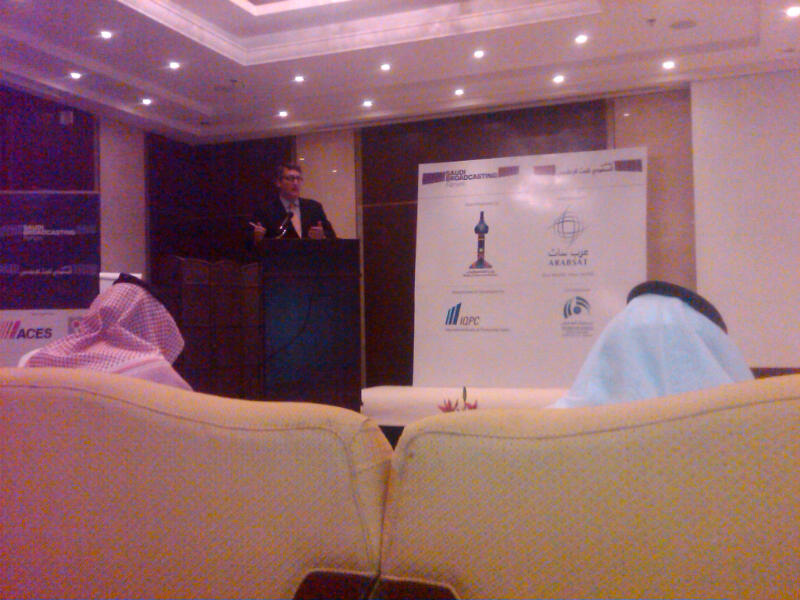Internet freedom, innovation top BBG’s agenda at conference in Saudi Arabia

Riyadh — The Broadcasting Board of Governors promotes Internet freedom because the unhampered flow of information is a prerequisite for democratic and economic development, BBG Board member Michael Meehan said at a conference in Saudi Arabia today.
Read Meehan’s prepared remarks.
“Global citizens are using media not only to tell their stories on a digital world stage, but also to connect with one another, to chart the future of their communities, and build new forms of civil society and civil discourse,” Meehan said.
“Widespread access to information also contributes to economic growth by empowering users and encouraging them to create communities around issues and enterprises. We at the Broadcasting Board of Governors are committed to broadening access to information, and to connect like-minded people with one another in support of that goal,” he added.
Noting that less than three weeks ago a video that went viral on the Internet sparked horrific attacks on U.S. embassies and consulates and the killing of U.S. diplomats in Benghazi, Meehan said, “These crimes, provoked in part by a crude, privately made and insulting video, were fueled by the same satellite transmissions and viral spread of information that ignited the popular protests of the Arab Spring.
“Media have extraordinary power,” he continued. “They can convey messages of hate as well as hope.”
Turning to the topic of online censorship by governments around the globe, Meehan cited a study issued last week by the non-governmental organization Freedom House that found more than 15 million people daily use a tool to circumvent restrictions to the Internet — and hundreds of thousands of them live in the Middle East and Northern Africa.
“The BBG’s Internet Freedom Program is taking a number of steps to help users circumvent government created firewalls that block access to certain content and to avoid surveillance by accessing the Internet anonymously,” he said. “Given the active campaigns in some countries to censor online news, we must continuously experiment with anti-censorship tools. We regularly test new techniques, keep the ones that work and drop those that don’t.”
Governments worldwide have also stepped up efforts to suppress more traditional forms of media, Meehan said, including harassment and arrests of journalists.
“In our own broadcast family, two Alhurra journalists who reportedly have been seized by Syrian forces remain missing,” he pointed out. Alhurra correspondent Bashar Fahmi and cameraman Cüneyt Ünal have not been heard from since August 20 when they went missing while reporting for Alhurra Television in Aleppo.
Meehan also described BBG broadcasters’ strong innovation agenda, which includes the development of next-generation content, tools, and distribution platforms.
For example, Radio Sawa, Alhurra television and Voice of America recently invited Egyptian students and freelance journalists to post images and reports to the Twitter hashtag #Egyptdecides and a special EgyptDecides Facebook page.
The Broadcasting Board of Governors is an independent federal agency, supervising all U.S. government-supported, civilian international broadcasting, whose mission is inform, engage, and connect people around the world in support of freedom and democracy. BBG broadcasts reach an audience of 187 million in 100 countries. BBG networks include the Voice of America, Radio Free Europe/Radio Liberty, the Middle East Broadcasting Networks (Alhurra TV and Radio Sawa), Radio Free Asia, and the Office of Cuba Broadcasting (Radio and TV Marti).
